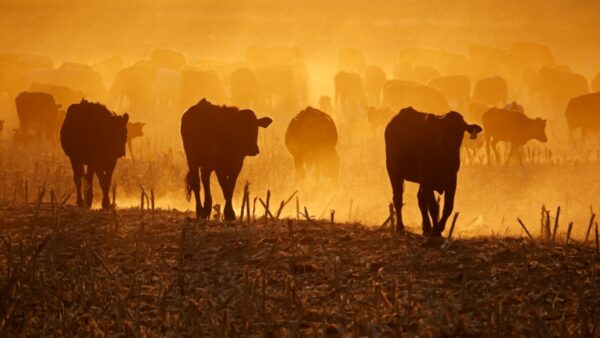
Shortly after the disagreement on the Parliamentary report on Farm Safety between the DA and the VF+, SAAI released the statement below. But first a little background on SAAI.
The Southern African Agri Initiative (Saai) is an agricultural interest network for farmers by farmers, which is committed to protecting and promoting the rights, values, ideals and needs of family farmers in the primary produce sector.
Family farmers are an essential part of rural communities, providing food and stability. However, they face new challenges, including climate change, corporate takeovers, and government interference. The Southern African Agri Initiative (Saai) was created to protect and promote the rights of family farmers. Saai focuses on policy influence, strategic solutions, and partnerships to address issues like poverty, hunger, gender equality, responsible production, and climate action. The organisation also emphasises the importance of education, health, energy, and water access for farmers. Saai strives to preserve rural communities, combat urbanisation, and create sustainable agricultural practices.
The report on farm safety presented before Parliament marks a significant breakthrough in acknowledging one of agriculture’s greatest challenges.
However, it still falls short and is out of touch with the realities that farmers face on the ground every day. In the contentious parliamentary debate surrounding the report, Saai will not side with the Freedom Front Plus (FF+) or the Democratic Alliance (DA), but—as true to our calling—will articulate the voice of the farmers.

Farmers largely rely on the DA and FF+ to represent their political interests in Parliament and are concerned about the deep differences in the two parties’ approaches to a matter that is vital to their survival. Ironically, the political entity that most accurately reflects the current security concerns of South African farmers is the Trump administration in the United States. None of the security-related conditions it set for restoring relations with South Africa are addressed in the report:
- That farm murders be declared a priority crime, and
- That the ANC distance itself from “Kill the farmer, kill the boer.â€
The fact that the report acknowledges the extraordinary brutality that characterizes farm murders is a major breakthrough. It is the first time it has been officially accepted that the nature and extent of farm murders are abnormal and cannot be compared with the country’s already high general murder rate. Farmers also welcome the recommendation that a specialized unit within the SAPS be established to combat farm attacks and stock theft. That these acknowledgments still do not justify declaring farm attacks a priority crime is inexplicable and raises suspicions.

The greatest challenge lies in implementation.
What troubles farmers about the report is that it recommends parliamentary visits to farms to seek out examples of farmer-worker conflict or poor labour relations. This stems from an old ANC narrative that farm murders are driven by worker mistreatment—something that was investigated and rejected by the International Labour Organization (ILO) in 2014. In 2015, the ILO, together with the University of Cape Town and the University of KwaZulu-Natal, published a report on farmworker conditions which debunked this narrative. The parliamentary report makes no reference to these reports, nor to what has changed since then.
Saai wants access to the data on which the report’s findings are based.
Apart from the fact that there is no scientific basis in the farm murder data for allegations of poor labour relations, the logic behind this argument is alarming. This is a report about farm attacks, yet it scrutinizes labour relations. It implies that disputes between workers and their employers—farmers—might somehow justify brutal murders!
Underlying the report are several serious allegations against a dysfunctional state, and this should have been Parliament’s focus instead:
- What is so ineffective about the regulatory labour environment that Parliament must conduct farm visits to find out why workers resort to murdering farmers, instead of asserting their rights through the CCMA or labour courts?
- Why must Parliament decide on better cooperation between police stations and farm watches, and how does this relate to the recent revelations about SAPS involvement in organized crime at the highest levels?
The Brendin Horner farm murder in Paul Roux illustrated how difficult it can be for farmers to cooperate with local police stations—whether it concerns farm attacks, stock theft, or trespassing. Saai is involved in several cases—on behalf of both black and white farmers—who are instituting civil claims against the SAPS due to losses suffered from police inaction against trespassing, crop thieves and poachers on farms. During Willie Aucamp, MP from the DA’s speech on the report, Members of Parliament from the MK party interrupted him, saying he made them feel like singing “Kill the farmer.†Regardless of what the Constitutional Court may say, the rest of the world—especially the USA—does not accept this call to murder as a mere cultural tradition. It has no place in a civilized South Africa and should have been addressed in the report.
While the report brings us across the advantage line, it still falls short of restoring farmers’ confidence in the political or state system. Far more decisive investigations are required to address farm murders as a stain on South Africa’s recent history. The most recent incident comparison meeting has once again proven that the true extent of crime on farms and in rural areas is severely underestimated, particularly because many incidents are not reported to the South African Police Service (SAPS).

A comparison between statistics from external stakeholders and SAPS’s database reveals shocking discrepancies:
- Only 50% of all livestock theft incidents reported through organized structures are recorded in the SAPS system.
- Only 15% of all illegal hunting incidents, especially those involving dogs, are officially registered.
- From January to May 2025 alone, 72 farm attacks and 10 farm murders have already been reported, reflecting an increase compared to the same period last year.
These differences indicate that very little crime is reported in rural areas, leading to misinterpretation of crime trends and misallocation of resources.
Saai makes an urgent appeal to all farmers, land users, and rural communities to report every crime incident to SAPS, no matter how minor it may seem. This includes:
- Farm attacks or murders
- Illegal hunting with dogs or other means
- Livestock theft, game theft, and poaching
- Unlawful trespassing on property
- Theft of cables, solar panels, water pumps, tools, and any equipment essential to farming operations
There is growing concern that the lack of official case numbers not only hampers investigations but also undermines the state’s ability to effectively manage crime in rural areas. Crime that is not officially recorded does not get investigated or acted upon.
Saai is currently actively involved in external working groups with SAPS to ensure that the definitions and classifications of rural areas, farm attacks, and related crimes are comprehensive and inclusive.
As part of this work, Saai has submitted a detailed document to SAPS, specifically addressing:
- What should be considered a “rural areaâ€
- The inclusion of smallholdings, communally farmed land, game farms, and settlements
- Proper recognition of victims: farmers, farm workers, residents, visitors, and service providers
- The importance of economic sabotage, infrastructure destruction, and theft as key elements of farm-related crime
This contribution is an effort to make SAPS’s statistics, prioritization, and resource allocation at ground level more realistic and targeted.
Saai will continue to prioritize this issue at a national level in partnership with other stakeholders in the agricultural sector. The organization sees it as a core responsibility to support family farmers and rural communities in their right to safety, justice, and sustainable food production.